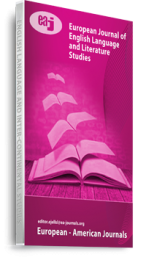Globalization in recent times has impacted positively on various aspects of life and advanced new opportunities for international co-operation, yet it has led to multifaceted social, economic, political and environmental challenges across the globe. Several developmental trajectories have been advanced towards addressing the dynamism of the developmental needs of countries by world leaders -from the 21st century Millennium Developmental Goals (MDGs)to the Education for all Goals (EFA)and more recently, the Sustainable development goals(SDGs) in their declaration of the anticipated future for global transformation ,come 2030.The United Nations identified seventeen (17)sustainable developmental goals that will help world transformation ,if achieved; but little attention was given to the societal organs/medium that will assist the realization of these goal such as language. This work therefore tries to fill this gap, using a qualitative research based on Sapir-Whorfian theory of language, with Leech’s five characteristics of language- informative, expressive, directive, aesthetic and phatic. The study seeks to assess the role of language in the attainment of the Sustainable development goals ,bearing in mind that the world is peopled with nations of diversified languages whose aims are to achieve collaborative partnership for world’s transformation ,by the year 2030.It was discovered that language plays a significant role in the achievement of virtually all the Sustainable development goals (SDGs)- from quality education to healthy living, promotion of peace and inclusive societies, industrialization and innovations ,implementation and revitalization of global partnership and others for the purpose of world transformation.
Keywords: Development, Goals, Language, Sustainable

